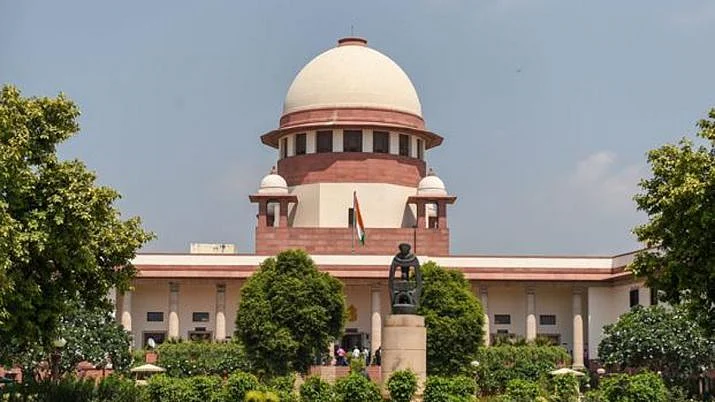SC asks Centre to furnish COVID-19 vaccines purchase data; outline of plan to vaccinate remaining population
The SC has also stated that vaccination policy relying entirely on CoWin portal ‘would be unable to meet its target of universal immunization owing to digital divide’

The Supreme Court has asked the Central government to furnish complete data on the government’s purchase history of all the COVID-19 vaccines till date including Covaxin, Covishield and Sputnik V.
The court ordered that the data should clarify:
(a) The dates of all procurement orders placed by the Central government for all 3 vaccines;
(b) The quantity of vaccines ordered as on each date;
(c) The projected date of supply.
The court also asked the Centre to provide an outline for how and when the Central government seeks to vaccinate the remaining population in phases 1, 2 and 3.
The order was passed by a Bench of Justices DY Chandrachud, L Nageswara Rao and S Ravindra Bhat in the suo motu case initiated by the top court to deal with issues relating to COVID-19 management in the country.
The court also ordered the government to provide data on the percentage of population that has been vaccinated with one dose and both doses, as against eligible persons in the first three phases of the vaccination drive.
This shall include data pertaining to the percentage of rural population as well as the percentage of urban population so vaccinated, the court said, as per a report by Bar & Bench.
The order, though passed on May 31, was published on the Supreme Court website only on June 2.
Further, the court also sought information on the steps being taken by the Central Government to ensure drug availability for mucormycosis (black fungus).
All these details will have to be filed through an affidavit within two weeks.
The court also directed all states and Union Territories to file affidavits clarifying whether they are giving COVID vaccines for free at state vaccination centres.
During the hearing on May 31, the court had questioned the Centre's vaccination policy regarding the differential pricing for States and Centre.
The Bench had called for a uniform pricing policy to be adopted for COVID vaccines across the nation.
"Centre says it gets a low price since it buys in bulk. If this is the rationale, then why do states have to pay a higher price? There needs to be one price for vaccines across the nation. The pandemic has evolved in the last two months," Justice Chandrachud observed.
In a related matter, the SC stated that the COVID vaccination policy in place, which relies exclusively on a digital portal (CoWin portal) for vaccinating a significant population of this country between the ages of 18-44 years, "would be unable to meet its target of universal immunization owing to digital divide."
"There exists a digital divide in India, particularly between the rural and urban areas," the court observed.
"The extent of the advances made in improving digital literacy and digital access falls short of penetrating the majority of the population in the country. Serious issues of the availability of bandwidth and connectivity pose further challenges to digital penetration," the court said.
The top court noted that the digital divide could have serious implications on the fundamental right to equality and the right to health of persons within the above age group.
The court, therefore, directed the Central government to clarify whether it is feasible to require the majority of our population to rely on friends/NGOs for digital registrations over CoWIN, when even the digitally literate are finding it hard to procure vaccination slots.
Further, the issue of over-crowding may also arise at CSCs in rural areas where people would have to visit constantly in hope of a vaccine slot opening up, the court noted.
"Certain vaccination centres may be earmarked for on-site registrations for the population aged between 18-44 years without the existing conditions prescribed in the circular dated 24 May 2021, potentially with a view to prioritize those with co-morbidities/disabilities/other socio-economic vulnerabilities," the judgment said.
The Supreme Court further noted that the CoWIN website suffers from certain impediments.
Follow us on: Facebook, Twitter, Google News, Instagram
Join our official telegram channel (@nationalherald) and stay updated with the latest headlines
